From German chancellor Angela Merkel to French president François Hollande, most of Europe's leaders strongly condemned Donald Trump’s ban on refugees and restrictions on arrivals from seven majority-Muslim countries.
But not everyone in Europe joined the chorus of critics. A number of parties and politicians have voiced their support for the US president's proposals and said they would like to introduce similar measures in their respective countries.
Geert Wilders

The leader of the Dutch far-right Party for Freedom (PVV), who last December was found guilty of inciting discrimination, was quick out of the blocks to praise Trump.
Well done @POTUS it's the only way to stay safe + free. I would do the same. Hope you'll add more Islamic countries… https://t.co/amuuGN6SD5
Wilders’ campaign slogans include “Stop Islam” and “Make the Netherlands Great Again”. Trump’s ban is an inspiration for some of the measures that Wilders wants to see in the Netherlands.
No more immigration from any Islamic country is exactly what we need. Also in The Netherlands For islam and freedom are incompatible.
The PVV is currently leading in the polls, but because of the Netherlands’ proportional voting system Wilders is unlikely to become prime minister when the country votes this March. The Dutch prime minister has made clear that he will not enter into coalition with Wilders.
Matteo Salvini
Salvini is the leader of the Italian far-right party the Northern League. Following Trump’s executive order, Salvini tweeted (in English, which he rarely does) that he wanted to bring the same kind of measures to Italy.
What @POTUS is doing on the other side of the ocean, I'd like it done in Italy. An invasion is underway, it needs to be blocked. #Trump
He called the plan to ban people from seven majority-Muslim countries “simply GREAT”.
#TRUMP: "Gli immigrati di sette paesi islamici non potranno entrare negli USA per i prossimi tre mesi". Razzista? No, semplicemente GRANDE.
"Trump: 'Migrants from seven Muslim countries will no longer be able to enter the US for the next three months'. Racist? No, simply GREAT."
The Northern League, which began life as a secessionist party in northern Italy and was the junior coalition party in successive Silvio Berlusconi governments, has in recent years veered further to the right and broadened its geographical appeal by relentlessly focusing on immigration.
One of Salvini’s preferred campaign lines is to (inaccurately) state that Italy is being invaded by migrants.
The Northern League is currently polling around 15%, which makes it the largest political force in the centre-right and right-wing bloc of parties. The party wants to drop the euro, an issue that some experts believe it could find common ground on with the populist and anti-establishment party the Five Star Movement.
Marine Le Pen
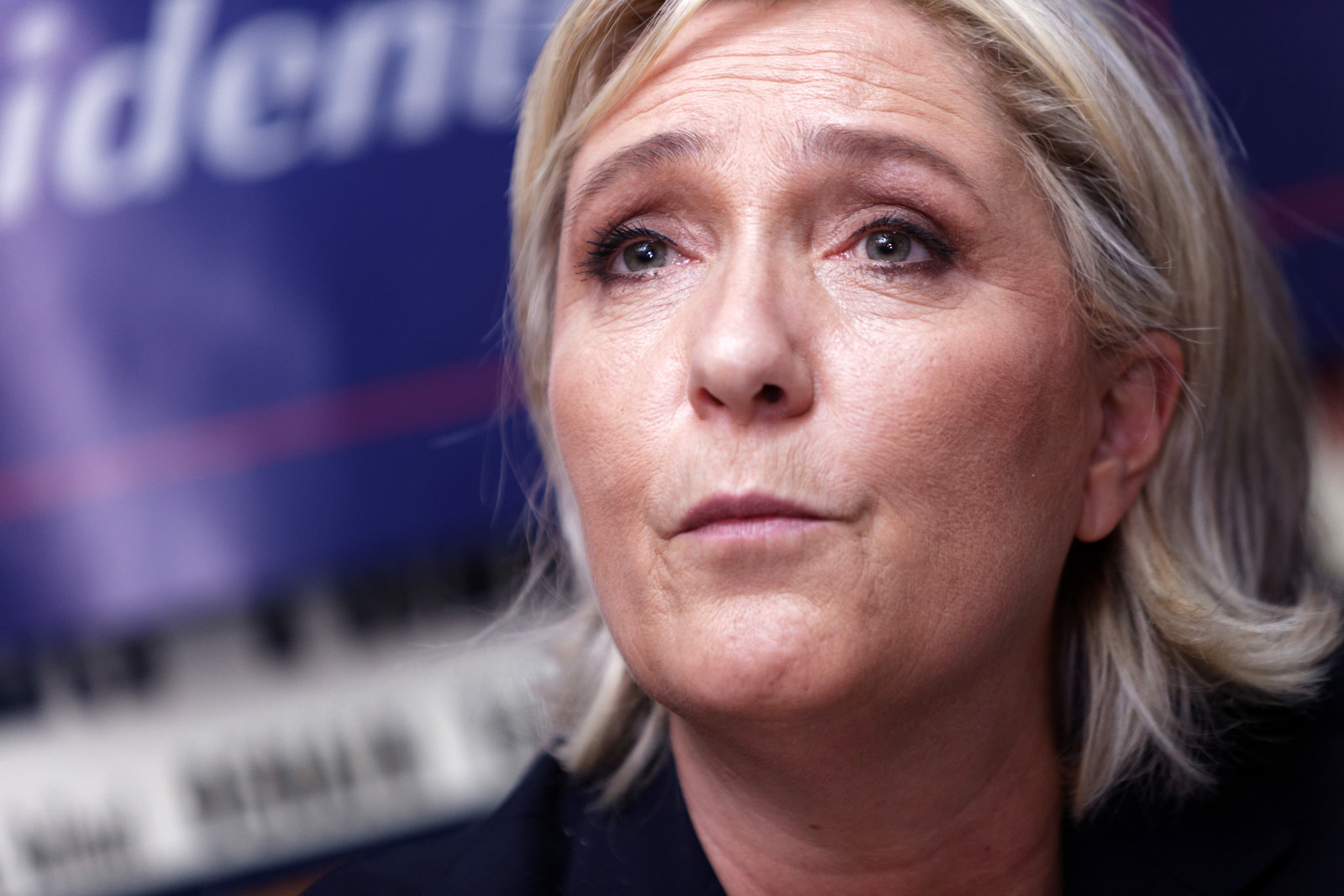
The leader of the French far-right National Front recently said in an interview that Trump is doing what she has advocated for years. Over the weekend, asked about the president's measures since taking office, she told French television that what bothers the media and politicians about Trump is that he sticks to his commitments and is implementing what he said he would do.
"Ce qui gêne les médias et les politiques, c'est que #Trump respecte ses engagements et applique son programme." #MLPTF1
"What bothers the media and politicians is that #Trump meets his commitments and implements his programme. #MLPTF1"
The affinity between Le Pen and Trump’s inner circle goes both ways. Steve Bannon, the president’s chief strategist, has made no secret of his sympathies for Le Pen and the National Front.
France holds a presidential election this spring, a vote that many see as a critical juncture for the EU’s future. Polls have Le Pen ahead in the first round but the National Front candidate trails by some 20 points in all likely runoff scenarios.
Sondage Kantar Sofres réalisé jeudi 26 et vendredi 27 janvier, juste après le #PenelopeGate : Fillon et Macron déso… https://t.co/8RR9aMvPVp
Les intentions de vote au second tour #sondage Kantar Sofres Fillon 60% / Le Pen 40% Macron 65% / Le Pen 35% Macron… https://t.co/1rNjcmvDja
As Le Pen tries to widen her appeal with Brexit-like messages of France "taking back control" and by targeting the hard left's working-class vote, the National Front candidate faces a difficult balancing act: First, Trump is not very popular in France (less than 1 in 4 French voters think he will make a good president) and second, there is nowhere near an anti-EU majority in France.
The Alternative for Germany (AfD)
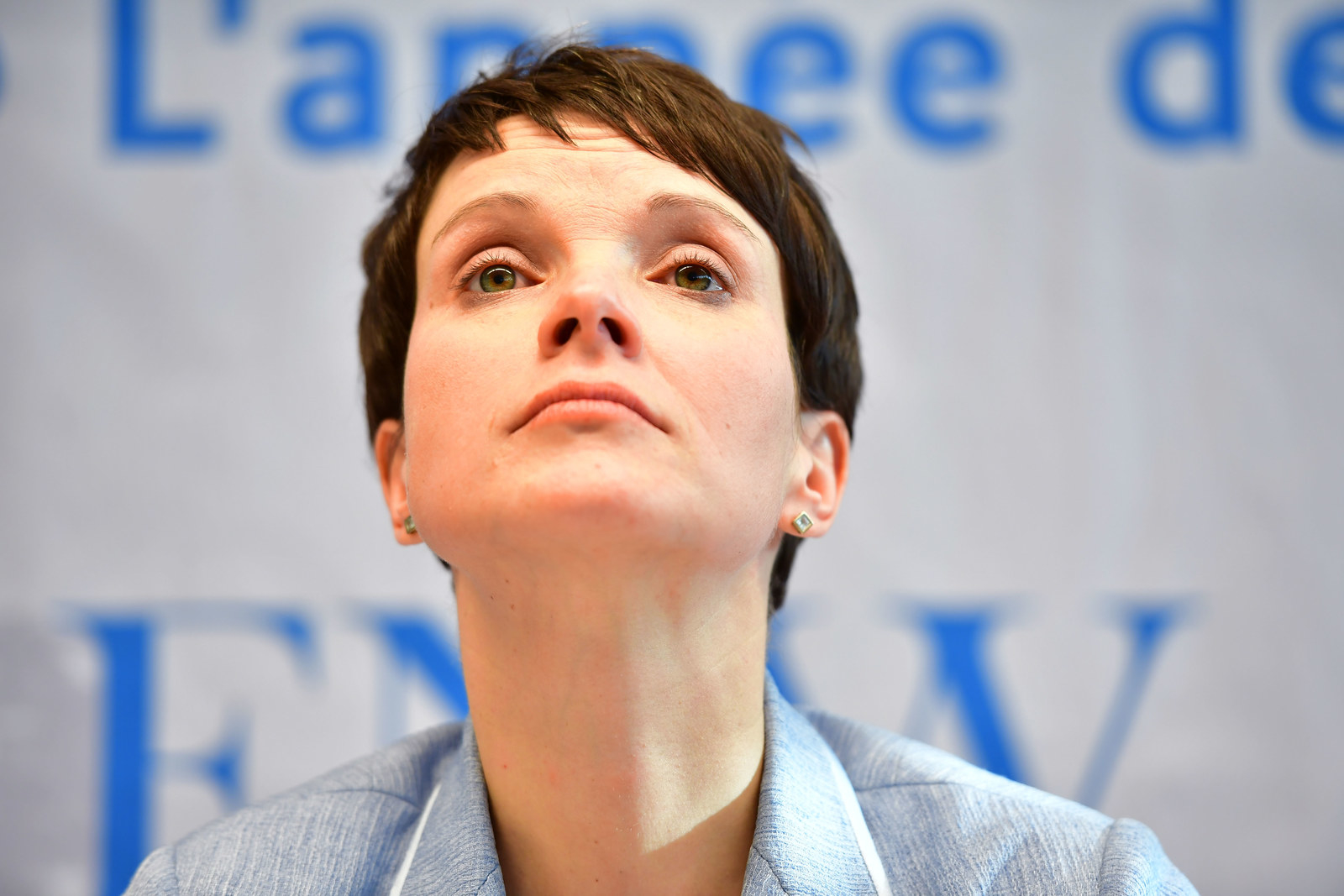
The chief of the AfD’s youth wing and spokesperson of AfD leader Frauke Petry has shared his approval for Trump’s migration restrictions on Facebook.
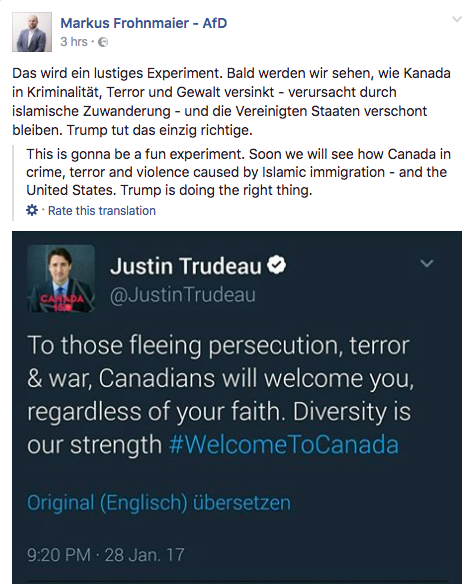

Meanwhile, the German far-right party defended Trump’s plans by calling suggestions the proposals amounted to a Muslim ban fake news.
As well as conflating debates about countering fake news with government attempts to censor, the AfD is using other arguments similar to the ones seen during the US presidential campaign. These include “anti-elite” and anti-Muslim rhetoric, and claims the “lügenpresse” — meaning the “lying press” — is hiding information from the public. The term, which was used by the Nazis, is widely used during far-right and AfD demonstrations.
Lügenpresse is not the only word from the past the AfD is trying to rehabilitate. The AfD leader has said the term “völkisch” should be destigmatised. The German dictionary of record defines "völkisch" as follows: "(in the ideology of National Socialism), concerning a people as a purported race; of or belonging to a people as a purported race". The main Nazi newspaper was called the Völkischer Observer.
Petry, who once compared migrants to compost, has praised Trump on several occasions.
The AfD caused more outrage earlier this month when one of its regional leaders condemned the Holocaust memorial in Berlin. He told a rally of party supporters that Germans were the "only people in the world who planted a memorial of disgrace in the heart of their capital".
The party is polling around 12–13% and is set to win seats in the German parliament for the first time when the country votes this September. But the AfD may find that referring to Trump too often could ultimately prove counterproductive: A recent poll found that 80% of Germans think the US president is incompetent, a trait that German voters don't take to with great fondness in choosing their political candidates.
The Freedom of Party of Austria (FPÖ)
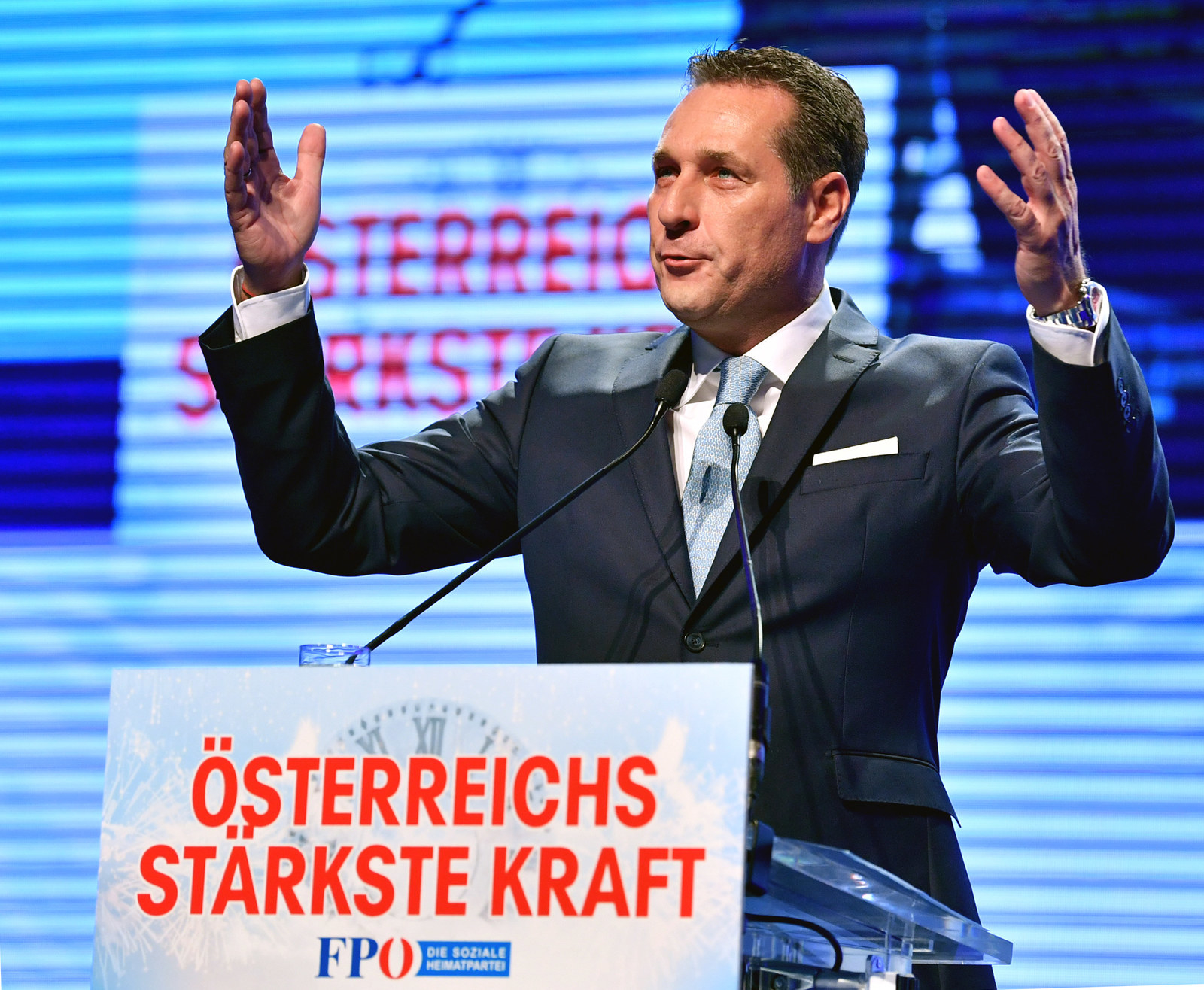
Among the biggest supporters in Europe of Trump’s policies is Heinz-Christian Strache, the leader of the far-right FPÖ. He has adopted an “Austria First” slogan, and like Wilders in the Netherlands has vowed to target the “Islamisation” of Europe.
Strache even attended Trump’s inauguration along with several other FPÖ members.
Austrian Freedom Party leadership MP's here to celebrate Trump inauguration. Hofer, Strache, Karlsboeck w/King, Bla… https://t.co/iMqY1P9izM
The FPÖ is currently leading in the polls, and amid suggestions that early elections could be held this year, forming a coalition government without its support could prove improbable based on current numbers.
The FPÖ was founded by former SS officers. It recently signed a cooperation agreement with Vladimir Putin’s party, United Russia.
The National Front, Northern League, PVV, AfD, and FPÖ leadership met earlier this year at a conference in Germany to set out their alternative vision for Europe. Trump was mentioned and widely praised at the event.
Golden Dawn
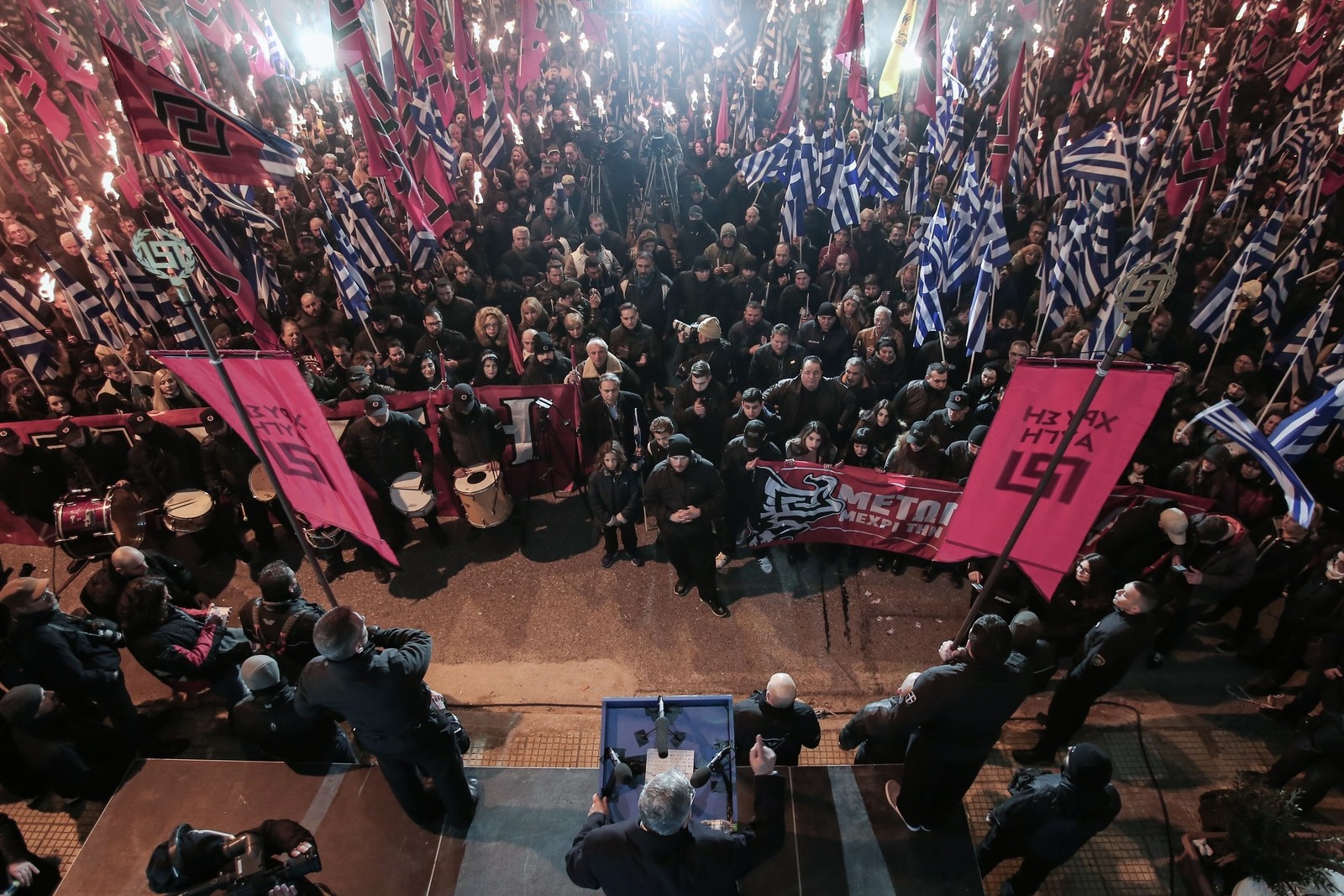
Greece's far-right party called Trump's election as president a victory against "illegal immigration" and in favour of ethnically "clean" nations. One of the party's MPs said this week they would like to see Greece adopt Trump's policy: "We just see tens of thousands of illegal immigrants in our country and hundreds, thousands of others that have already come to Greece years ago and our country is an open field, everyone can come whenever they want and they can leave whenever they want. We would like to follow a policy like Donald Trump is doing in the States right now."
Viktor Orbán
Not all of Trump’s fans in the EU hail from the far-right. The conservative, and, according to some critics, increasingly illiberal prime minister of Hungary was the only EU leader to publicly endorse Trump.
Orbán has been accused of cracking down on opposition media and freedom of speech, and has said that Muslim migrants should not be welcomed into Europe and that all refugees pose a terror risk. His government fiercely opposes multiculturalism because it is contrary to its interpretation of Western values.
In a speech last week, Orbán cited Trump to say that it is every country’s right to put itself first. "Change will happen soon and the era of multilateralism will come to an end," he added.
PM Orbán: We can make Europe great again https://t.co/gStsBSiAJr
Other leaders of the so-called Visegrad nations (Hungary, Poland, the Czech Republic, and Slovakia) also had a different take on the refugee ban to most other EU member states. The Polish government refused to criticise Trump, with the country's foreign minister saying it was the president’s right to introduce new border policies. A spokesman for Czech president Miloš Zeman welcomed the ban introduced by Trump. The four Visegrad countries have so far opposed EU plans to resettle refugees.
Nigel Farage
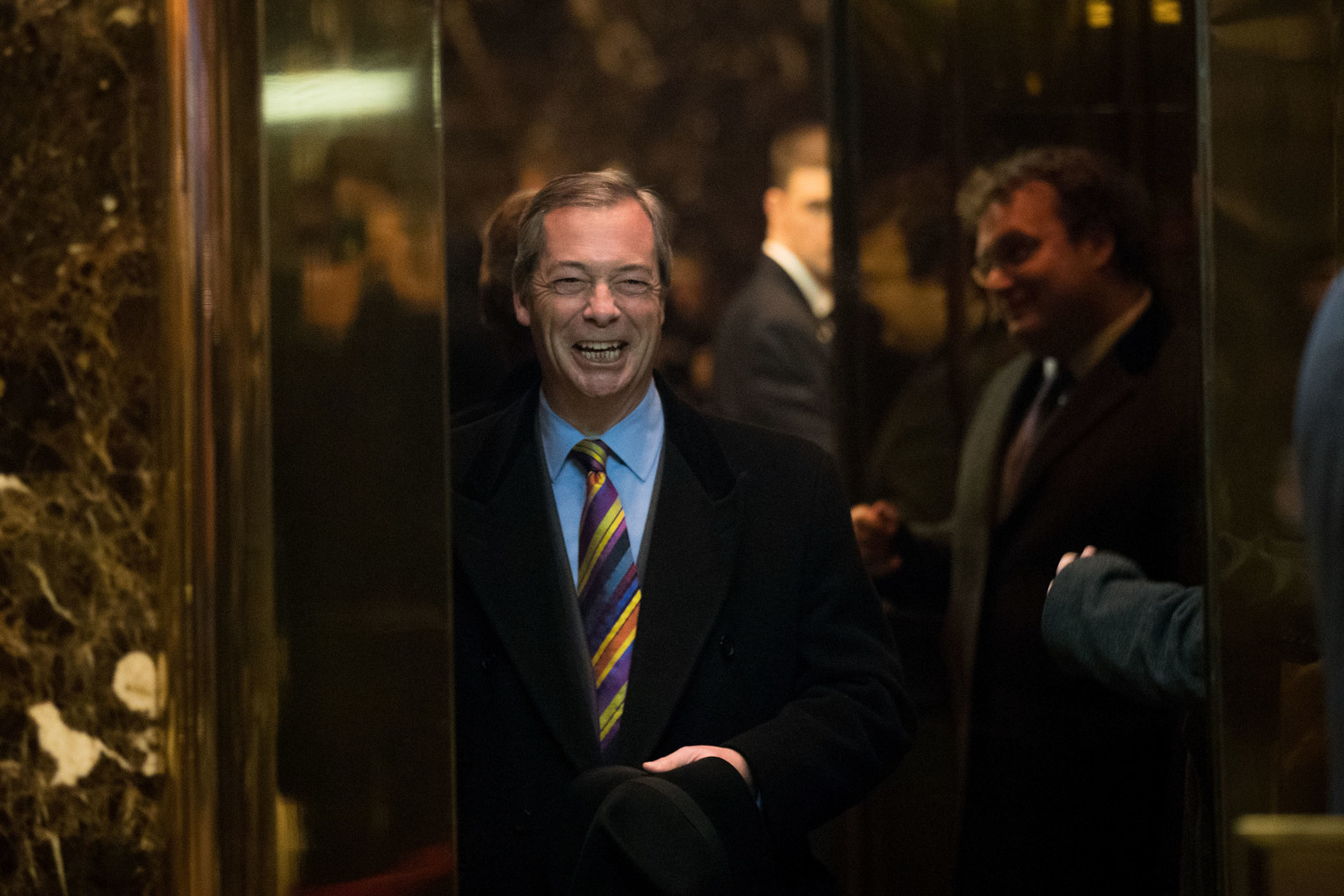
Of course, the roll call of those endorsing Trump’s refugee ban includes Brexit campaigner and TV pundit Nigel Farage.
'@POTUS was elected by American voters and is honouring his pledge to stop ISIS. Protestors need to wake up and lea… https://t.co/tEmxm9Zyyn
The former UKIP leader, dubbed “Mr Brexit” by Trump during last year’s presidential election campaign, has suggested the UK should follow the American president’s lead and introduce “extreme vetting” at Britain’s borders.
